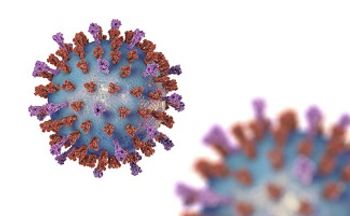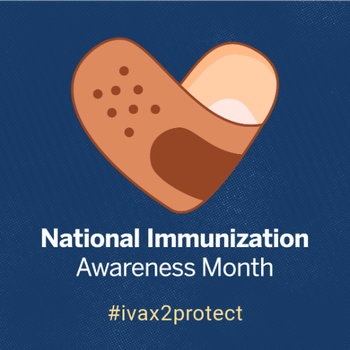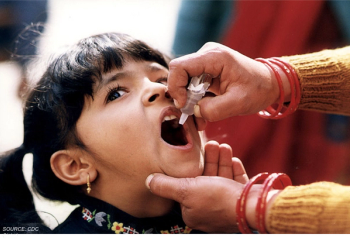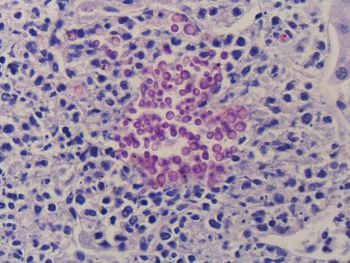
An analysis of existing studies suggests prevalence of non-physician-sanctioned administration may be as high as 66%.

An analysis of existing studies suggests prevalence of non-physician-sanctioned administration may be as high as 66%.

A study found no significant difference in outcomes between ceftazidime, carbapenems, and piperacillin-tazobactam as monotherapy for treating P aeruginosa, offering insight that may help antibiotic stewardship programs.

A pair of new studies is raising concern that standard malaria therapies may no longer work for large portions of the world’s malaria cases.

A new study sheds light on how sustainable efforts can be made to improve hand hygiene.

The state has documented 2582 cases of hepatitis A in the ongoing outbreak. Health officials indicate that 98% of those cases were acquired within the state.

Some rural counties with historically low rates of HIV infection are now experiencing increased risks for HIV transmission of the virus and do not have the infrastructure or resources to respond appropriately.

Investigators say that 12 weeks following vaccination neutralizing antibodies remained 5- to 10-fold above baseline levels in all vaccine dosage groups.

Here is a look at infectious disease-related US Food and Drug Administration news from the week of July 28, 2019.

We’ve rounded up a list of important US Food and Drug Administration (FDA) and US Department of Agriculture (USDA) recalls from this past week.

Stay up-to-date on the latest infectious disease news by checking out our top 5 articles of the week.

The first step (prime) is to immunize with conventional vaccines through a needle in the arm. The second step (pull), is to apply an antibiotic cream that helps attract, T cells, to the site of virus growth.

The latest guidance on preparing for and responding to measles in your health care facility.

When speaking with patients or parents, it is important for health care practitioners to stress that vaccines are safe, and vaccines save lives.

Initiating and adhering to ART is a difficult task for a significant number of people living with HIV. A new study shows that making a concerted effort to find and encourage this population to get the care they need is not an impossible dream.

Efforts to understand the rare polio-like condition acute flaccid myelitis got a boost from the NIAID, which awarded $10 million over 5 years for a natural history study.

The new recommendations aim to limit the potentially deadly disease from infecting newborns or mothers.

August 1, 2019, marks the 1 year anniversary of the North Kivu Ebola outbreak.

As July draws to a close, the Contagion® editorial team is recapping the trends and top infectious disease news of the month.

The adjusted hazard ratios for 1-dose and 2-dose recipients were comparable to the 3-dose recipients (1 dose 1.01 [95%CI 0.81–1.26], 2 doses 1.00 [0.85–1.17]) after adjusting for age at vaccination among the vaccinated group.

The disease remains endemic in the region but an increase in confirmed cases since the start of the year has raised concern.

Public health officials are growing increasingly concerned about the health dangers of medical misinformation. However, it’s proving to be an especially difficult problem to solve.

Knee and hip replacement patients who have healthier intestinal microflora may have a lower risk of developing dangerous periprosthetic joint infections than patients with unhealthy guts.

A recent phase 2 study showed favorable results for oral ibrexafungerp, a novel beta-glucan synthase inhibitor, as a step-down treatment for invasive candidiasis.

Deeper understanding of how Yersinia plague pathogens impede the immune system could help investigators develop targeted treatments for these bacterial infections.

Not all disinfectants are created equal and here's why we need to remember that.

As of July 24, 2019, 132 individuals have been diagnosed with Cyclospora infection as part of a multistate outbreak linked to consumption of fresh basil.

The percentage of participants who achieved HIV-1 RNA< 50 copies/mL in the 0.25 mg, 0.75 mg, 2.25 mg MK-8591 dose groups was 89.7%, 90.0%, and 77.4%, respectively, at week 48.

A sharp increase in syphilis cases in Europe is hitting hardest among MSM and has been linked to the use of PrEP drugs and an increase in risky sexual behavior.

Providers’ communication styles and level of knowledge about HIV have a significant impact on whether patients begin and remain in treatment.

Here is a look at infectious disease-related US Food and Drug Administration news from the week of July 21, 2019.